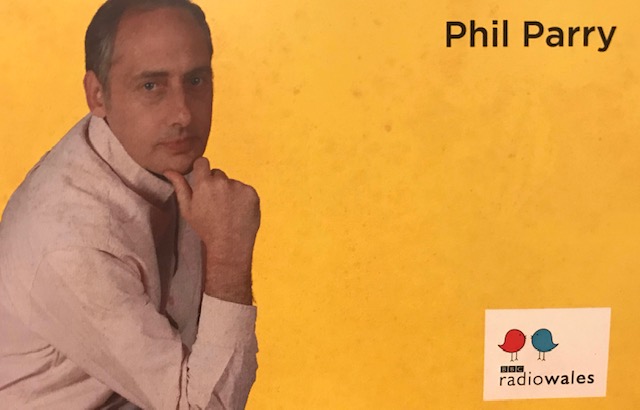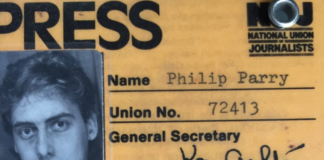- Jobs for the boys and girls - 21st January 2026
- Huwge mistake with public money… - 20th January 2026
- Green with envy… - 19th January 2026

On this St David’s day, here our Editor Phil Parry looks at how the lives of people in Wales are treated differently to those in other parts of the world – with the way news is presented today in the mainstream UK media being fundamentally racist, which does not treat all people the same.
Earlier he has described how he was helped to break into the South Wales Echooffice car when he was a cub reporter, recalled his early career as a journalist, the importance of experience in the job, and making clear that the ‘calls’ to emergency services as well as court cases are central to any media operation.
He has also explored how poorly paid most journalism is when trainee reporters had to live in squalid flats, the vital role of expenses, and about one of his most important stories on the now-scrapped 53 year-old BBC Cymru Wales TV Current Affairs series he presented for 10 years, Week In Week Out (WIWO), which won an award even after it was axed, long after his career really took off.

Phil has explained too how crucial it is actually to speak to people, the virtue of speed as well as accuracy, why knowledge of ‘history’ is vital, how certain material was removed from TV Current Affairs programmes when secret cameras had to be used, and some of those he has interviewed.
He has also disclosed why investigative journalism is needed now more than ever although others have different opinions, and how information from trusted sources is crucial at this time of crisis.

There is an unwritten, but abhorrent, rule in news journalism that all people must NOT be treated equally.
I should know because I presented news programmes for many years.
Unfortunately the plain obnoxious reality in newspapers, broadcasting and online in the UK, is that the value of people’s lives in developing countries is worth far less than those from more developed nations.
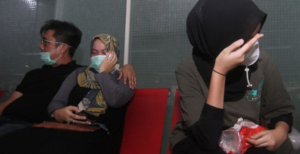
This awful truth was thrown into stark relief for me by the way the mainstream media treated news about the recent disaster of an aeroplane in Indonesia which crashed with the loss of fifty lives.
The BBC website briefly included it as the top item because it broke on a Saturday when there is a reduced number of reporters on rota to report stories, before it was replaced with a piece saying scientists believed lockdown rules needed to be strengthened.
It stated: “A passenger plane with more than 50 people on board has gone missing (for that read that it has probably crashed – you need to know the code!) shortly after take-off from the Indonesian capital Jakarta.
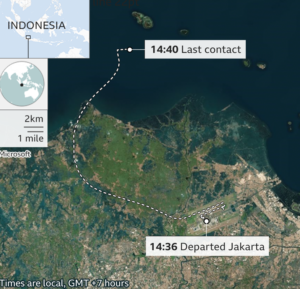
“The Sriwijaya Air Boeing 737 lost contact en route to Pontianak in West Kalimantan province, officials said”.
On The Guardian site it was third, while on the Sky News home page it was sixth.
Yet if it had been in the UK or even in another developed country like France or the USA it would have probably led the news and stayed there for several days.
Reports about dreadful ferry disasters on the Indian sub-continent are treated in a similar fashion.

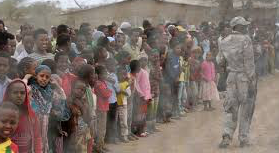
However figures have a role to play as well (and this too is appalling), because the numbers who have died can sometimes overcome the fact that it happened in a developing country.
If, say, thousands died during a famine in an African country, this might push the report further up the news bulletin.
These terrible facts were all-too prevalent when I presented the radio programmes for BBC Cymru Wales (BBC CW) Wales at One (WaO) and Good Evening Wales (GEW).
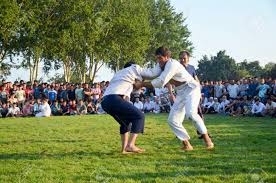
WHERE the disasters took place and the NUMBER of lives mattered.
In sport too it is a similar story.
If it is a sport which is recognised in the UK (such as soccer or cricket) then a report about it in a foreign country will be treated differently to one in a developing country which might be no less important there, such as wrestling in some central Asian countries.
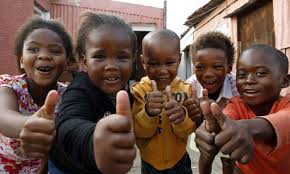
However the way life is portrayed in developing countries by the mainstream media, is frowned upon in academic circles.
One periodical stated: “(developing) countries are characterized by low visibility, stereotypes and generalization”.
Another said: “countless studies demonstrate that (the) media continue to reproduce ethnic and racial stereotypes, with often harmful effects”.
 Harmful effects is right – for news presenters too…
Harmful effects is right – for news presenters too…
Dydd Gwyl Dewi Sant Hapus!
Tomorrow – the disturbing backgrounds to the men behind new ‘national’ news services for Wales.
Phil’s memories of his astonishing decades-long award-winning career in journalism (when presenting the news made for worrying decisions) as he was gripped by the rare disabling condition Hereditary Spastic Paraplegia (HSP), have been released in a major book ‘A GOOD STORY’. Order the book now!









